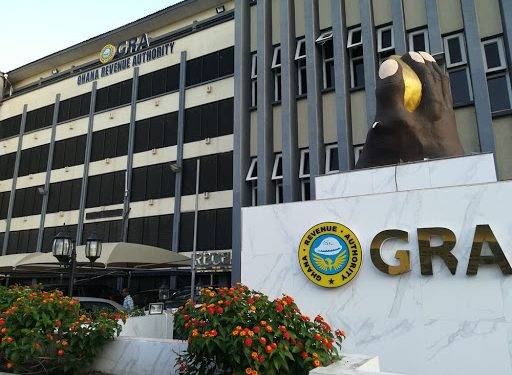The proposal by President-elect John Dramani Mahama to scrap both the E-Levy and the COVID-19 tax is set to result in significant revenue losses for Ghana, with projections showing a total shortfall of GHS 22.15 billion between 2025 and 2027. This ambitious plan, which has sparked considerable debate, raises questions about the long-term fiscal impact, especially in light of Ghana’s ongoing relationship with the International Monetary Fund (IMF) and the country’s current economic challenges.
The cancellation of the E-Levy and COVID-19 tax, which have been key sources of government revenue, could create a major gap in the national budget next year. The decision has raised concerns about the feasibility of such a move, given Ghana’s need for fiscal stability and economic recovery. The E-Levy was introduced in 2022 as a measure to enhance domestic revenue mobilization, while the COVID-19 tax was implemented in 2021 to help manage the financial fallout from the pandemic. Both taxes are expected to generate substantial revenue over the next few years, and their removal could disrupt the government’s fiscal plans.
According to a detailed tax analysis report by Francis Timore-Boi, the abolition of these taxes would result in a combined revenue loss of GHS 6.37 billion in 2025. The report projects that the E-Levy would generate GHS 2.4 billion in 2025, an increase from the GHS 2.1 billion budgeted for 2024. Meanwhile, the COVID-19 Levy is expected to contribute GHS 3.97 billion in 2025, up from GHS 3.1 billion in the current year. Together, these levies are crucial in helping to stabilize Ghana’s finances and support key government initiatives.
However, if the levies are scrapped as proposed, the revenue shortfall is expected to deepen significantly over the following years. In 2026, the loss could reach GHS 7.37 billion, with GHS 2.74 billion coming from the E-Levy and GHS 4.63 billion from the COVID-19 tax. By 2027, the total revenue loss is projected to increase to GHS 8.41 billion, including GHS 3.09 billion from the E-Levy and GHS 5.32 billion from the COVID-19 Levy.
This three-year cumulative loss of GHS 22.15 billion presents serious challenges for Ghana’s fiscal sustainability. The government would likely face difficulty in meeting essential funding requirements for critical sectors such as education, healthcare, and infrastructure. In addition, the loss of these revenues could place greater pressure on the government to rely on borrowing, which would only exacerbate the country’s already unsustainable debt levels. As a result, Ghana’s exposure to economic risks could increase, particularly if the country is unable to offset the revenue loss through alternative sources.
Analysts have warned that removing these levies without clear alternative revenue measures could undermine fiscal stability and derail Ghana’s fragile economic recovery efforts. The country’s ongoing relationship with the IMF is particularly sensitive, as the government is working to implement economic reforms aimed at stabilizing the economy and addressing the debt crisis. The IMF has been closely monitoring Ghana’s fiscal performance, and any significant deviation from projected revenue targets could raise concerns among international lenders and investors.
Some industry experts believe that a solution to the revenue shortfall could lie in reducing import exemptions and concessions at the ports. Tax consultant Francis Timore-Boi estimates that up to GHS 9 billion could be saved by cutting back on these exemptions. In 2023 alone, direct tax exemptions at the ports amounted to approximately GHS 3.5 billion, with the government approving around GHS 1.7 billion. In addition, several items are zero-rated when imported, which further reduces the amount of revenue collected from trade. A review of these exemptions and zero-rated imports could provide a significant source of revenue to offset the loss from scrapping the E-Levy and COVID-19 tax.
“By reviewing and reducing these exemptions, we could generate substantial revenue. If we focus on eliminating unnecessary exemptions and zero-rated imports, we could recover much of the revenue lost from the removal of these levies,†says Timore-Boi.
While the scrapping of the E-Levy and COVID-19 tax aligns with the NDC’s goal of alleviating the tax burden on households and businesses, analysts caution that the economic trade-offs need to be carefully considered. The proposal comes at a time when the country is still working to recover from the economic fallout of the COVID-19 pandemic and manage rising inflation, high debt levels, and other economic challenges.
The decision to eliminate these taxes also raises broader questions about the long-term sustainability of Ghana’s tax policies. With the country’s tax base still heavily reliant on a narrow set of sources, including taxes on oil and gas, the removal of these taxes could make it more difficult to diversify revenue streams. Ghana’s informal sector, which has traditionally been hard to tax, remains a significant part of the economy, and efforts to expand the tax net and improve compliance will be crucial in the coming years.
As the debate continues over the proposed tax cuts, the government will need to carefully assess the impact on its budget and long-term economic prospects. If the scrapping of the levies proceeds as planned, the government will need to find other ways to fill the revenue gap and ensure that key services and development projects are not derailed. Reducing import exemptions may be one solution, but it remains to be seen whether it will be enough to cover the substantial shortfall caused by the loss of the E-Levy and COVID-19 Levy.
In conclusion, while the proposal to abolish the E-Levy and COVID-19 tax may provide some relief for businesses and households, it presents significant fiscal risks for Ghana. The country will need to carefully balance its economic priorities and explore alternative revenue sources to mitigate the loss of these vital taxes. Without a clear strategy for managing the revenue shortfall, Ghana’s economic stability could be at risk in the years ahead.



No comments yet
Be the first to share your thoughts!